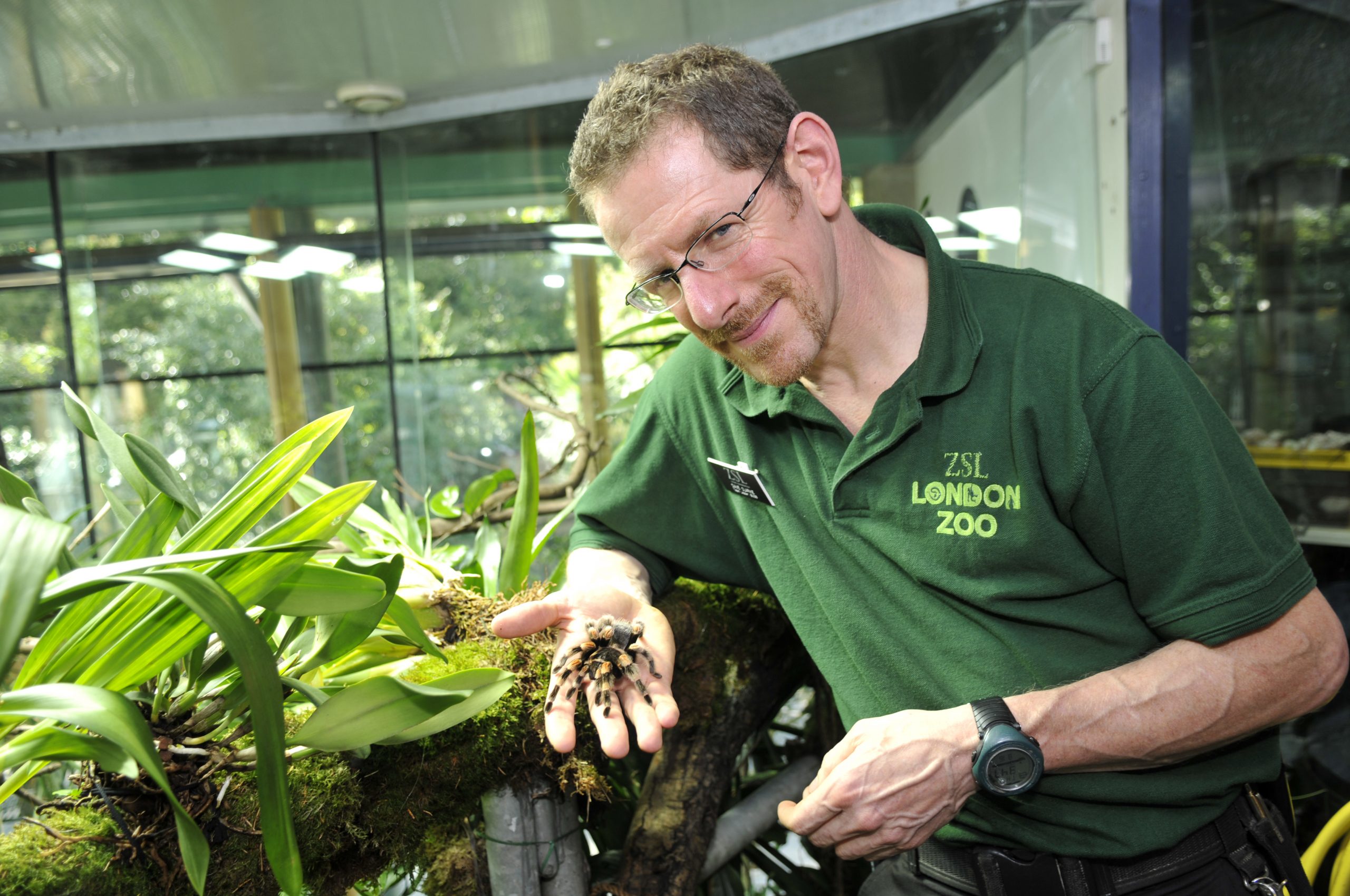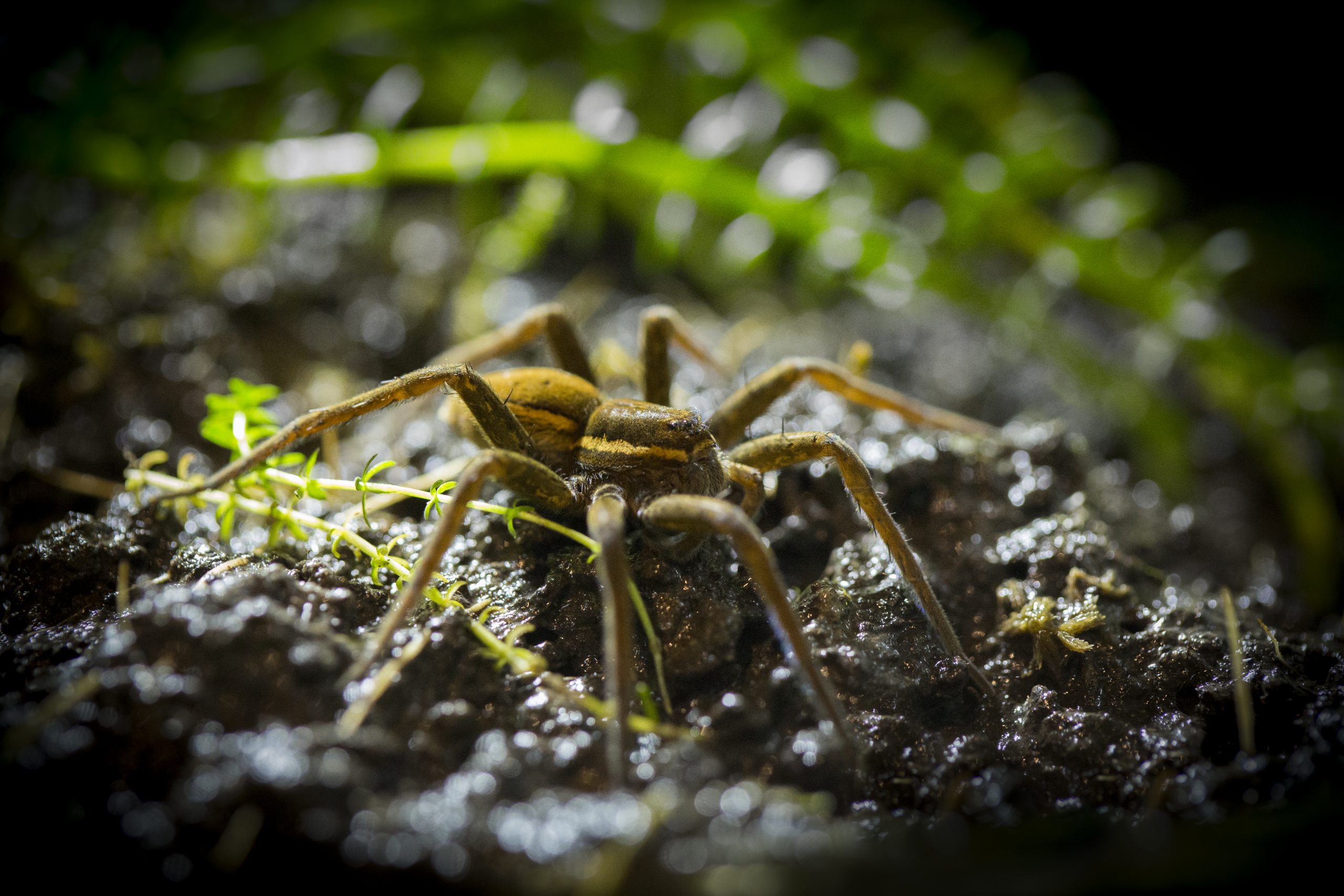![]() By Milly Veitch
By Milly Veitch
January 29 2020, 08.54
Follow @SW_Londoner
Arachnophobia is one of the biggest phobias in the UK, but luckily Zoological Society of London claims to have come up with a cure.
The Friendly Spider Programme is designed to help people get over their fear of spiders, by using hypnotherapy, a Q&A with a spider expert and finally a chance to get up close and personal with some creepy crawlies.
According to the most recent survey by YouGov, more than half of Londoners are afraid of spiders, ranking them the 4th most common phobia behind heights, public speaking and snakes.
Why are we so scared of spiders?
Head of the Invertebrate Conservation Unit Dave Clark has run the course since 1993, and worked with people from ages 5 to 90, says it is based on combining a knowledge of spiders with hypnotherapy to remove their subconscious fears.
On why people are scared of spiders, Mr Clark said: “For the vast majority it is not a fear of being harmed by the spider, but it’s about the way they move, their unpredictability and the way they invade our homes which triggers a response.
“They are weird, but to me that’s what makes them fascinating – it’s about embracing that ‘differentness’, which is an important thing nowadays.”
He said that people who come have such a severe phobia that they can’t even say the word spider or are unable to re-enter a room once they’ve seen one.
Mr Clark said: “One big thing is regaining control because a lot of people feel helpless when faced with a spider and have to rely on a partner but then panic like mad when they’re not there.”
He described a woman who had bought a new flat but was forced to sell it when she saw a spider and couldn’t return, and another who was trapped in her cold bath for an hour by a spider in her bathroom until her husband came home.
Mr Clark says the main thing they want people to understand is that spiders aren’t out to get us, and that bites are very rare and their effects greatly exaggerated.
“They’re actually very valuable to us and we wouldn’t survive without them eating flies and mosquitoes which spread disease – they’re completely free bio-controls,” he said.

Does it work?
The course starts by getting people to rate their fear out of ten, with most people scoring eight to ten.
But by the end of the course, Mr Clark says they will normally will be down to a three.
He says nearly everyone is able to hold a spider by the end, and the course usually has a 99% success rate across the year.
Retired teacher, Moira De Souza went on the course last year after becoming fed up of her spider fear.
“I went into it with the attitude that I really wanted it to work because I’d got to this stage where I was really dreading coming home in autumn because of all the big spiders that come in,” she said.
Mrs De Souza said that as her kids were growing up she was determined they wouldn’t pick up a fear of spider, but that since she’s got older, her own fear has increased.
She added: “I’ve always known it’s a silly reaction, but that’s what a phobia is. You can’t control it.
“I never wanted to kill them, but I couldn’t deal with seeing one when no one was around to help and then feeling that they’d be lost under the bed, under the sofa and in the house.”
She went along to course where she was able to walk among the spiders at the zoo, catch one in a cup and even held a tarantula.
She said: “I didn’t feel any of the kind of physical responses I’d expected to feel when I saw a spider at close.”
Mrs De Souza believes the key to beating her phobia was her desire for it to work combined with the hypnosis session in the course.
She said: “The thing I was really skeptical about was the hypnosis, and I think actually that’s the bit that worked – I can actually still hear the guy’s voice in my head.”
Since the course Mrs De Souza says she’s much more relaxed about spiders and hasn’t found any in her house, feedback which Mr Clark says is very common.
“These people live a world of spiders, so if there’s one around they are going to spot it because they’re always on the lookout, but that awareness will drop off after they’ve done the course,” he said.
Mrs De Souza said: “I don’t know how I’d be if I was in a country where spiders are harmful, but at the moment I’m very positive about it and interested to see what will happen when I meet one.”
She added: “I’d definitely recommend the programme, it certainly worked for me and it’s money well-spent!”

Training the mind
NHS Choices states that, unlike more complex phobias, arachnophobia can be treated by gradual exposure to a spider to lessen feelings of anxiety, like what the course replicates across the day.
The course combines hypnotherapy with widely used cognitive behavioural therapy to learn methods that teach the mind to react differently when it feels fear.
Emma Maslin says she used a similar method of neuro-linguistic programming on her six-year-old daughter who was terrified of spiders, and now laughs when she sees them.
Ms Maslin said: “She now sees spiders with eight ballet shoes on as we mapped across in her mind something she disliked to something she loves.”
Mr Clark explained that the Zoo’s mission is to change people’s opinions of all invertebrates and that for him it’s a privilege to help people get over their fears.
He added: “Spiders are incredible, beautiful and amazing things and we just want other people to share that appreciation as well.”
You can book tickets for the Friendly Spider Programme at https://www.zsl.org/experiences/friendly-spider-programme
All pictures courtesy of the Zoological Society of London.




